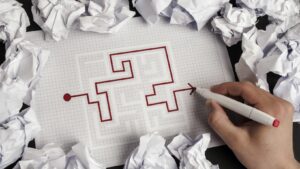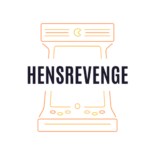In a world that’s increasingly complex, the ability to solve puzzles and tackle academic challenges isn’t just a skill, it’s a necessity. It’s the mental gymnastics that keep our brains sharp, and the intellectual agility that helps us navigate life’s labyrinthine twists and turns.
From the Rubik’s cube to the rigorous equations of calculus, these challenges push the boundaries of our intellectual prowess. They test our mettle, stretch our understanding, and ultimately, shape our cognitive abilities.
Skill at Puzzle Solving and Other Academic Challenges

Mastering the art of puzzle solving brings numerous cognitive benefits, impacting not only intellectual growth but personal development as well. Brain teasers, crossword puzzles, Sudoku, and even complex jigsaw puzzles demand significant mental energy and critical thinking abilities. They serve to enhance memory, improve concentration, and boost problem-solving skills.
Take Sudoku, for instance, a numeric challenge pushing one to engage in strategic planning. To successfully fill in a grid, an individual must be adept at recognizing patterns, projecting outcomes, and making on-the-spot decisions. Consequently, regular involvement with such puzzles allow the brain to better adapt to academic tests or real-world situations, requiring similar abilities.
Puzzle Solving in Academic Settings
Puzzle solving demands a high level of intellectual engagement and academic vigor. It caters not only to entertainment purposes but also forms a vital component in diverse fields of study. From mathematics to applied sciences, the use of puzzles transcends the bounds of casual gaming, incorporating themselves into academic learning material.
Take chess, for example. Used in mathematics teaching, it amplifies the understanding of logical sequences and strategic planning. Equally, in the realm of computer science, puzzles like the Rubik’s Cube find their application in studying and enhancing algorithmic proficiency.

In linguistics, crossword puzzles enhance vocabulary and foster lateral-thinking abilities. Mental agility increases as students unscramble word puzzles, encouraging them to think outside the box and expand their linguistic range.
Puzzles also have a therapeutic role in education. Students with learning disabilities find jigsaw puzzles beneficial, assisting them in developing fine motor and cognitive skills.
Tools and Resources for Enhancing Puzzle Skills
Building on previous knowledge, it’s clear that puzzle-solving skills are crucial for cognitive abilities. However, obstacles can discourage learners from engaging fully in these challenges. Enter the variety of tools and resources available to bolster these skills. These tools not only help learners overcome difficulties, they also unlock the benefits offered by puzzles in different fields of academia.
Digital Applications
Advancements in technology present numerous digital applications designed to sharpen puzzle-solving skills. Apps such as Lumosity and Peak offer brain games and puzzles that aid in cognitive development. For Sudoku enthusiasts, apps like Sudoku Master provide progressively hard challenges suitable for all skill levels.
Puzzle-solving Books
A traditional yet powerful tool, puzzle-solving books, like ‘Mensa’s Guide to Solving Sudoku,’ offer step-by-step techniques to conquer any sudoku puzzle. Books such as ‘Mastering the Rubik’s Cube’ present strategies for learners seeking to tackle more complex puzzles relative to their academic fields.
Educational Games
Creating hands-on experiences, educational games like chess or Scrabble encourage strategic thinking and vocabulary development, respectively. Rubik’s Cube, for instance, promotes logical reasoning skills, underpinned by geometric understanding.
Online Platforms

From online chess leagues to crossword enthusiasts’ forums, the internet serves as a resource that connects learners to a global community. These platforms provide opportunities for learners to exchange puzzle-solving strategies, fostering their cognitive development through shared insights.
Through regular practice with varied resources, they can overcome challenges, master the art of puzzle-solving, and fully harness the corresponding cognitive benefits.

